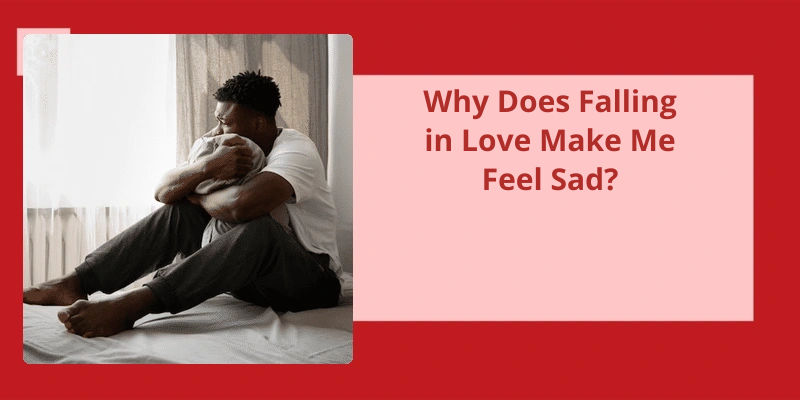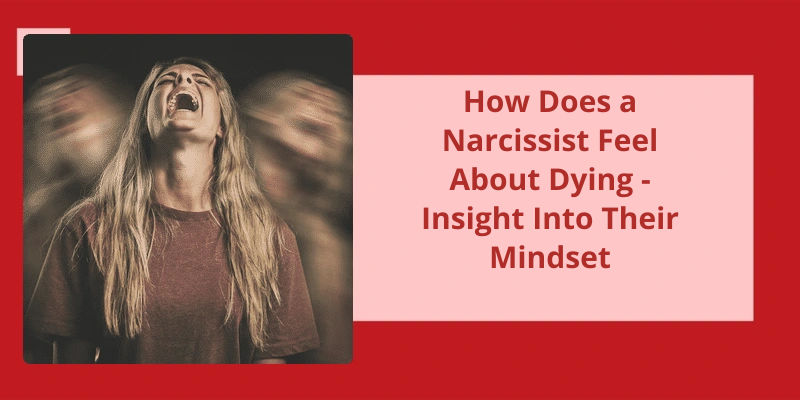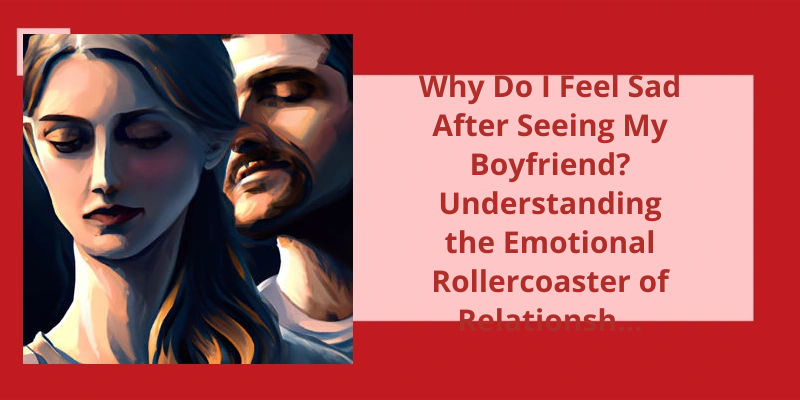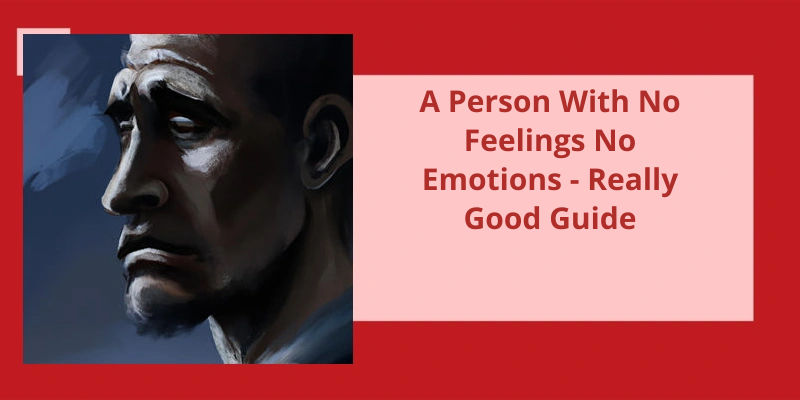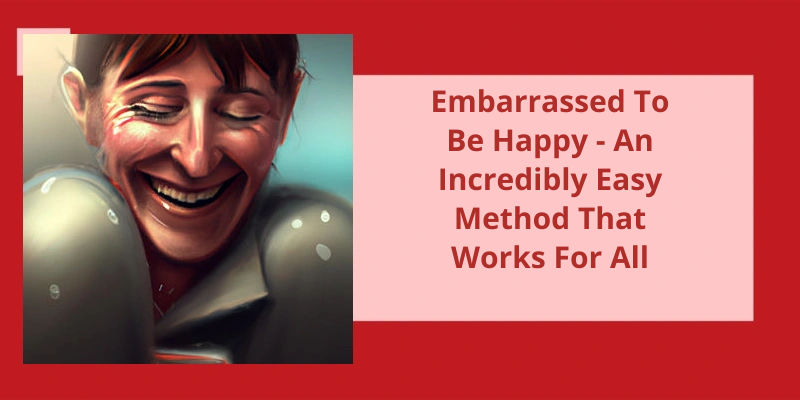There’s a commonly held belief that falling in love is supposed to make us feel happy and fulfilled. It's been celebrated in art, literature, and popular culture as the ultimate goal of human existence. But what happens when instead of feeling ecstatic, we experience a sense of sadness or melancholy? Why does falling in love sometimes leave us feeling disappointed, anxious or vulnerable? The answer to this question is multifaceted, as falling in love can trigger a complex array of emotions and reactions in our bodies and minds. Understanding these underlying factors can help us navigate the ups and downs of romantic relationships with greater ease and self-awareness.
Why Does Falling in Love Make You Emotional?
Furthermore, the brains reward center is activated when we fall in love, causing a flood of neurochemicals to be released, including dopamine, oxytocin, and serotonin. The release of these chemicals can have a powerful impact on your mood and emotions, making you feel euphoric, giddy, and even a bit obsessive.
These changes can lead to a strong desire to be with the person you love, a willingness to take risks to be with them, and a sense of urgency to build a life together. This intense focus on one person can also lead to feelings of jealousy, possessiveness, and even irrational behavior.
Other hormones, including oxytocin and cortisol, also play a role. Oxytocin is often called the “cuddle hormone” because it’s released during intimate physical contact, including hugs, kisses, and sex. This hormone is also responsible for promoting feelings of trust, bonding, and attachment between partners.
On the other hand, cortisol is known as the “stress hormone” because it’s released in response to perceived danger or stress. When we fall in love, our brains can interpret rejection from our loved one as a threat, triggering the release of cortisol. This can lead to feelings of anxiety, fear, and even physical symptoms, such as a racing heart or sweaty palms.
However, it’s important to remember that while falling in love can be an incredible experience, it can also be intense and overwhelming at times, and it’s important to look after your mental health and seek support if needed.
Love is a complex and powerful emotion that can have a profound impact on our wellbeing. It’s something that we all experience at some point in our lives, and it can bring immense joy and happiness. However, being in love can also make us feel vulnerable and emotional, causing us to experience a range of intense feelings and physiological changes. In this article, we will take a closer look at the ways in which being in love can affect us emotionally and explore the science behind these powerful emotions.
Can Being in Love Make You Emotional?
The very definition of love, in fact, is emotional. We associate love with a whirlwind of feelings — happiness, excitement, joy, and contentment. Even the very mention of the word often sends shivers down the spine of those who’re in love. It’s almost impossible to detach emotions from love. Being in love makes you feel everything all at once, the highs and the lows, and it’s this very aspect of love that makes it so alluring and beautiful.
Love has a profound effect on our brains and bodies. As we begin to fall in love, our brains release a cocktail of chemicals such as dopamine, oxytocin, and serotonin, which trigger sensations of pleasure, joy, and happiness. These chemicals also cause a heightened sense of emotion, making us feel everything more intensely. This is why people in love often feel a sense of euphoria that’s difficult to explain.
However, being in love can be a double-edged sword. As much as it brings happiness and joy, it can also lead to emotional instability, making us vulnerable and sensitive. Love can make us feel vulnerable, as we open ourselves up to another person, exposing our deepest feelings and fears. This feeling of vulnerability can often trigger negative emotions, such as anxiety, fear, and even anger.
Moreover, being in love can also make us more sensitive to rejection. When we invest our emotions and feelings in another person, we often fear rejection or abandonment. This fear of rejection can lead to heightened emotional responses, making us more sensitive and prone to overreactions.
The Different Types of Love and How They Can Affect Our Emotions (e.g. Romantic Love, Platonic Love, Familial Love)
Love is a complex and diverse emotion that manifests itself in various forms. Some of the most common types of love include romantic love, platonic love, and familial love. While romantic love is typically associated with intense feelings of passion and attraction, platonic love is characterized by a deep, non-sexual connection between friends or acquaintances. Familial love is often the most enduring and unconditional form of love, rooted in the bonds between parents and their children or siblings. Each type of love affects our emotions in different ways, shaping our relationships and shaping how we see the world around us.
Love is a powerful emotional experience that can bring great joy and fulfillment, but it can also be accompanied by feelings of sadness and pain. When love is combined with sadness, it can create a complex and intense emotional experience that can be difficult to navigate. In this article, we will explore the ways in which love can bring sadness, and how we can learn to cope with these challenging emotions.
Does Love Bring Sadness?
Love is an emotional state that can lead individuals down a complicated and often-painful path. While it’s true that love brings individuals joy, happiness, contentment, and fulfillment, it can also lead to heartache and sorrow. In essence, love is a double-edged sword that can cause both smiles and tears. Whether love brings sadness or not is a philosophical question that’s been pondered by individuals for centuries.
When love leads to heartbreak, people can experience a range of negative emotions, including sadness, depression, frustration, and anger. These emotions can make it hard to focus on other aspects of life, impacting mental and physical well-being. When love is at it’s peak, longing for someone or something that doesn’t appear attainable creates more intense sadness and heartache. Even after a relationship ends, people can still feel the pain of love.
On the other hand, love can help people build relationships that can help them work through sadness and other negative emotions. Loving friends, family, or partners can provide comfort, support, and understanding during difficult times. When individuals experience sadness, thinking of the love that exists in their lives can help ease their pain.
Ultimately, whether love brings sadness or not is subjective to ones experience. For some people, heartache and sadness are inseparable from love, while others may feel that they’ve found love without ever experiencing sadness. It’s important to remember that emotions are complex and multifaceted, and it’s natural to feel them all – including love and sadness.
It’s worth noting that love, in it’s most poignant form, adds complexity to sadness. The most intense form of love elicits a range of emotional responses that when added to sadness, becomes more poignant and meaningful. The feeling of intense pain resulting from lost love can make the joy of being in love much more profound and life-changing.
In this sense, love and sadness are interdependent, and both contribute to the richness of the human experience.
The Physiological and Psychological Effects of Heartbreak and Grief Caused by Love
This topic examines how heartbreak and grief, often resulting from romantic relationships, can have both physical and emotional impacts on a person’s well-being. The focus is on exploring the effects of these experiences on the body and mind, rather than suggesting ways to move past them.
Being in love can be an exhilarating, joyous experience, but it can also bring about unexpected emotions. It’s not uncommon for individuals in a close relationship to feel moments of sadness or emotional intensity, despite the happiness and contentment they may also feel. Understanding these emotional reactions can help individuals navigate their relationship with greater ease and lead to a deeper connection with their partner.
Is It Normal to Be Emotional When You’re in Love?
In fact, it isn’t just normal, it’s actually healthy. Being able to express our emotions openly and honestly is a vital component of any healthy relationship. When you’re in love with someone, it’s natural to experience a wide range of emotions, including happiness, contentment, excitement, and at times, sadness. This is because when you’re in love, you’re allowing yourself to be vulnerable and open, which can leave you feeling exposed and raw.
It’s essential to remember that everyone experiences emotions differently, and what may be normal for one person may not be the same for another. However, feeling emotional when you’re in love is a common experience that’s seen across cultures and societies worldwide. This is because love is a complex emotion that can be difficult to fully comprehend and understand.
It’s a sign that you’re allowing yourself to be vulnerable and open with your partner, which is a critical component of building a healthy and happy relationship. Whether you feel sadness, happiness, or a mix of emotions, it’s important to remember that you aren’t alone, and that your feelings are valid and important to express. So go ahead and let yourself feel all the emotions that come with being in love – it’s a beautiful and rewarding experience that will enrich your life and bring you closer to those you care about most.
What Are Some Common Emotions Experienced When Falling in Love?
When falling in love, people may experience a range of different emotions, including happiness, excitement, nervousness, joy, awe, and even a sense of vulnerability. These emotions often arise due to the intense connection and affection felt towards the other person.
Love is a complex and challenging emotion that can bring both joy and pain. When our love isn’t reciprocated or when the person we love changes or leaves us, we may feel heartbroken and sad. However, seeking support from a therapist can help you navigate the challenges of love and find ways to cope with it’s ups and downs.
Can Loving Someone Make You Feel Sad?
One of the reasons why people may feel sad when they love someone is the uncertainty that often accompanies love. Love can be unpredictable, and there’s no guarantee that the other person feels the same way you do. You may feel vulnerable and anxious, wondering whether your love will ever be reciprocated. This sense of uncertainty can be emotionally draining, leading you to feel sad and discouraged about your chances of being with the person you love.
Ultimately, loving someone can be a complex and emotional experience that can evoke a wide range of feelings, including sadness. While it may be challenging to cope with these feelings on your own, working with a therapist can provide the support and guidance you need to navigate the complexities of love and relationships. By exploring your feelings and learning healthy coping strategies, you can find ways to manage your emotions and cultivate a more fulfilling and satisfying love life.
How to Recognize and Differentiate Between Healthy and Unhealthy Expressions of Love and Sadness
- Healthy expressions of love involve mutual respect, boundaries, and communication.
- Healthy expressions of sadness involve acknowledging and processing emotions, seeking support when needed, and finding healthy coping mechanisms.
- Unhealthy expressions of love involve jealousy, possessiveness, control, or manipulation.
- Unhealthy expressions of sadness involve spiraling into depression, self-harm, or using substances as a coping mechanism.
- It’s important to learn to recognize these patterns in yourself and in others, and seek help if necessary.
It’s natural to experience a range of emotions when it comes to someone you love deeply. From tears of joy to tears of sorrow, the emotional bond you share can be overwhelming at times. However, this isn’t limited to just romantic love, as any form of love can evoke such strong emotions. Let’s delve deeper into the different types of love and how they can make us emotional.
Why Do I Cry When I Love Her?
When you care deeply for someone, your emotions become intertwined with theirs. This can cause an intense emotional response that can result in tears. It’s a natural reaction as you feel a connection to that person and their well-being is important to you. The tears are a manifestation of that bond and show how much you truly care about them.
Love is a powerful emotion that can bring out a wide range of feelings, from happiness to sadness. The overwhelming feelings of love can be tough to handle, and sometimes tears are the only way to express it. This is especially true when the person you love makes you feel happy or fulfilled. It’s an automatic response to your emotions that just happens.
When you love someone, you become emotionally invested in them. Their pain becomes your pain, and their happiness becomes your happiness. It’s a deep emotional attachment that brings out both joy and sorrow, and it’s a beautiful thing to experience.
When you love someone deeply, you also become vulnerable to their actions and emotions. It’s a sign that you care deeply for that person and their actions affect you.
Sometimes tears are a way to express emotions that words cannot. It’s a physical manifestation of your love, and it’s okay to let those emotions out. It shows that you’re human and have the capacity to feel deeply. Dont be afraid to cry when you love someone because it’s a beautiful thing that shows how much you truly care.
Source: Why do I cry so much when I love a girl? – Quora
Conclusion
While there may be no single answer to the question of why falling in love makes some people feel sad, it may be due in part to a fear of vulnerability, the uncertainty and unpredictability of relationships, and the inherent risk of heartbreak. Additionally, cultural and societal expectations of what love should look like can create unrealistic expectations and contribute to feelings of dissatisfaction and disappointment. Ultimately, each person's experience of falling in love is unique, and it’s important to acknowledge and honor our own emotional responses while also seeking support and guidance from trusted friends, family members, or professionals as needed.

